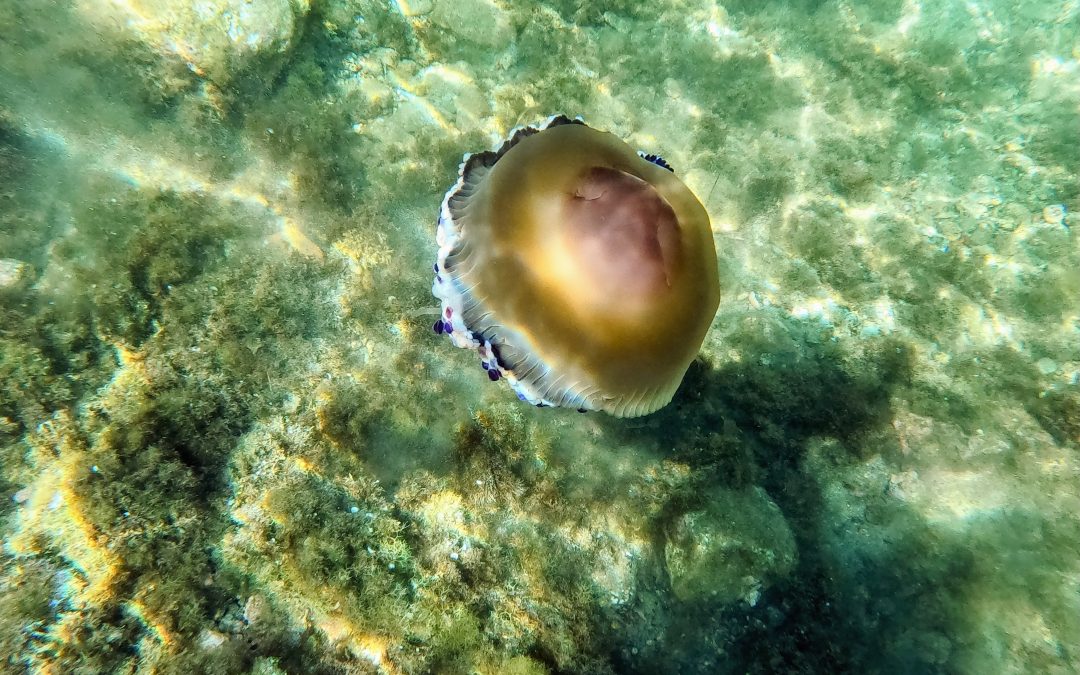If you came for a swim in Platja d’Aro this August, you probably came across one of the most curious jellyfish in the Mediterranean: Cotylorhiza tuberculata, popularly known as the fried egg jellyfish because of the look of its bell.
This summer we’ve had the chance to observe it in great numbers for weeks, with a peak in mid-August, when dozens and even hundreds were drifting along our coast.
A Mediterranean species, almost harmless
The fried egg jellyfish is native to the Mediterranean and very common in our waters. Unlike other jellyfish, you don’t need to fear it: its sting is so mild that in most cases you barely feel it.
Watching it is truly mesmerizing. Its golden bell and purple-spotted arms make it one of the most beautiful and photogenic jellyfish.
What does it eat?
This jellyfish feeds mainly on plankton, but it also has a symbiotic relationship with microscopic algae (zooxanthellae) living in its tissues, which provide it with energy through photosynthesis.
More than just water temperature
It’s a common belief that jellyfish only appear because of sea temperature, but their abundance actually depends on multiple factors: currents, nutrients, and even overfishing, which reduces the predators that feed on jellyfish eggs and larvae.
A curious life cycle
Jellyfish alternate between a fixed stage (polyp) and a free stage (adult medusa). Each summer, when conditions are favorable, polyps release new jellyfish into the sea, which explains the blooms that sometimes surprise swimmers.
Watching them from kayak and snorkel
On our kayak and snorkel tours with Set Sail Costa Brava, we often encounter this species and share its story with our visitors.
We watch them without disturbing them, as what they truly are: travelling companions, silent creatures in balance with the ocean.
They have lived on this planet for millions of years, long before us. They don’t pollute, they don’t disturb, they just drift, reminding us that the sea is a living world that deserves to be known and respected.

